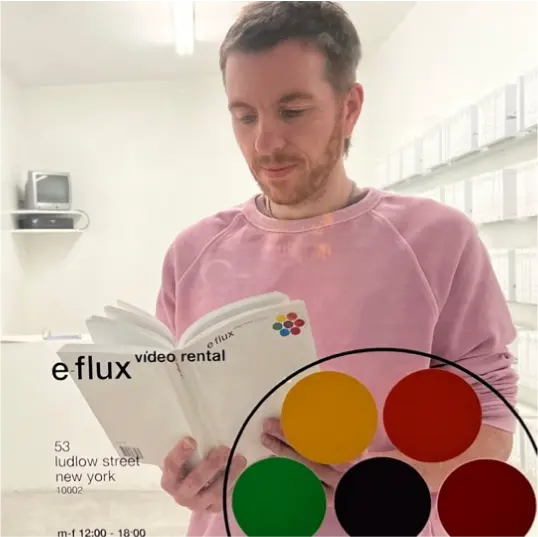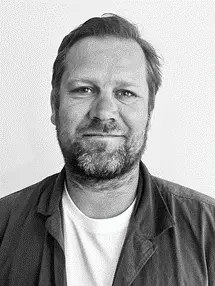Steffen Köhn
Steffen Köhn is an associate professor of visual and multimodal anthropology at Aarhus University where he coordinates the Visual Anthropology MSc-track. His research focuses on contemporary socio-technological landscapes. He currently serves as the Principal Investigator (PI) for two research projects: “Island in the Net – Emergent Digital Culture and its Social Consequences in Post-Castro Cuba”, funded by the German Research Foundation (DFG), investigates the impacts of growing access to digital technology and the Internet on citizen-state relationships in Cuba. “The Social Life of Crypto”, funded by the Independent Research Fund Denmark (DFF), examines how cryptocurrencies have become integrated into everyday informal economic practices in countries at the margins of financial and technological power. His research-based videos and installation works have been showcased at various prestigious venues, including Aksioma Institute for Contemporary Art Ljubljana, Warsaw Biennial, Academy of the Arts Berlin, Hong Gah Museum Taipei, Lulea Biennial, and The Photographers’ Gallery London. His films have been screened at renowned film festivals such as the Berlinale, Slamdance, Rotterdam International Film Festival, and BFI Film Festival London, among others.

Kenni Eilert
Kenni Eilert is a PhD fellow at the Department of Anthropology at Aarhus University, with an academic background that includes a bachelor’s in Anthropology and Philosophy and a master’s degree in Visual and Multimodal Anthropology, both from Aarhus University. Specializing in visual and multimodal anthropology, Eilert has received formal training in microphenomenology under the supervision of Claire Petitmengin, further honing his expertise in qualitative methodologies.
In his current role, Eilert also directs the The laboratory for visual and multimodal anthropology – Eye and Mind – at Moesgaard Museum. His interdisciplinary research leverages microphenomenological interviews (MPi) and multimodal approaches such as ethnographic film, alongside conventional anthropological methods. In his PhD research project titled: “Towards an Anthropology of Recognition”, this innovative combination allows Eilert to explore nuanced dimensions of intersubjective recognition and its foundational role in shaping the dynamics of care, rights, and community-building, with particular emphasis on phenomena like solidarity, compassion, and love. Eilert’s work critically examines how intersubjective recognition, as a deeply personal yet socially embedded lived experience, influences and redefines relationships across diverse faiths and lifeworlds. His extensive fieldwork in Gellerupparken – focused on the interactions between Islamic and Christian communities – offers insightful cultural critique and demonstrates how closely analyzing subjective experiences can yield profound understandings of community, faith, and the negotiation of identity. Eilert’s research stands at the cutting edge of anthropological inquiry, contributing valuable perspectives to discussions on how subjective engagements shape, challenge, and transform interfaith and intercultural relations.

Christian Suhr
Christian Suhr is a filmmaker and professor of visual and multimodal anthropology at Aarhus University. He is the PI of the ERC project: “Heart Openings: The Experience and Cultivation of Love in Buddhism, Christianity, and Islam” (2021-26). His previous research has focused on invisible spirits, psychiatric illnesses, demonic and divine forces, and how film can be used to approach unseen dimensions of human life. He has explored these topics during fieldwork projects in Egypt, Papua New Guinea, and Denmark. He is the author of the book Descending with Angels: Islamic exorcism and psychiatry, a film monograph (Manchester University Press 2019) based on a feature-length film of the same title.
In 2022 Light upon light (DER, MAD, PARADOX 2022) was premiered at CPH:DOX and Cairo IFF, a film that explores how Sufis in different ways seek and sometimes experience light in postrevolutionary Egypt, directed and produced with Hala Lotfy, Muhammad Mustapha, Amira Mortada, and the cairo-based film collective Hassala Films. The second film in this collaboration examines the experience and cultivation of love and is now in pre-production.
Together with Ton Otto, Steffen Dalsgaard, and Gary Kildea, Christian Suhr also directed the Baluan trilogy, including the award-winning films Unity through culture (DER 2011), Ngat is dead (DER 2009), and the newly released On behalf of the living (DER 2024).
Want a camel, yes? (with Mette Bahnsen) about tourists and camel drivers was released in 2005. The forthcoming film Epoche (with Claire Petitmengin, Mind & Life Europe) explores the use of microphenomenology in examining experiences during meditation.
Suhr’s edited work includes the books Transcultural montage (Berghahn 2013) and When the media sets the agenda (DJØF 2021) as well as three special journal issues: “Al-Ghayb: The poetics and politics of the unseen in Islam” (Contemporary Islam 13.1, 2019); “Anthropology and media” (Jordens Folk 54, 2019); “Camera as cultural critique” (Journal of Visual Anthropology 31.4, 2018).

Christian Vium
Christian Vium is associate professor in anthropology at Aarhus University. His work has been exhibited in 40+ exhibitions. He is the Principal Investigator on the research projects ‘Everyday Histories’ (Velux Foundations, 2024-2027) and ‘Revisioning the African City’ (Independent Research Fund Denmark, 2024-2028). Vium is an honorary curator at Moesgaard Museum. He is currently finalizing his twenty-year project on irregular migration from Africa to Europe, ‘Departed’, on a Carlsberg Monograph Fellowship. His tripartite monograph ‘Revisited’, will be published in 2025 by SPECTOR books, Leipzig. In 2023-24, he was Associate Research Fellow at the Film Studies Center, Harvard University (US), and part of CPH:LAB. He received the RPS Grant 2024, and the Danish National Research Foundation Photo Prize 2024.
